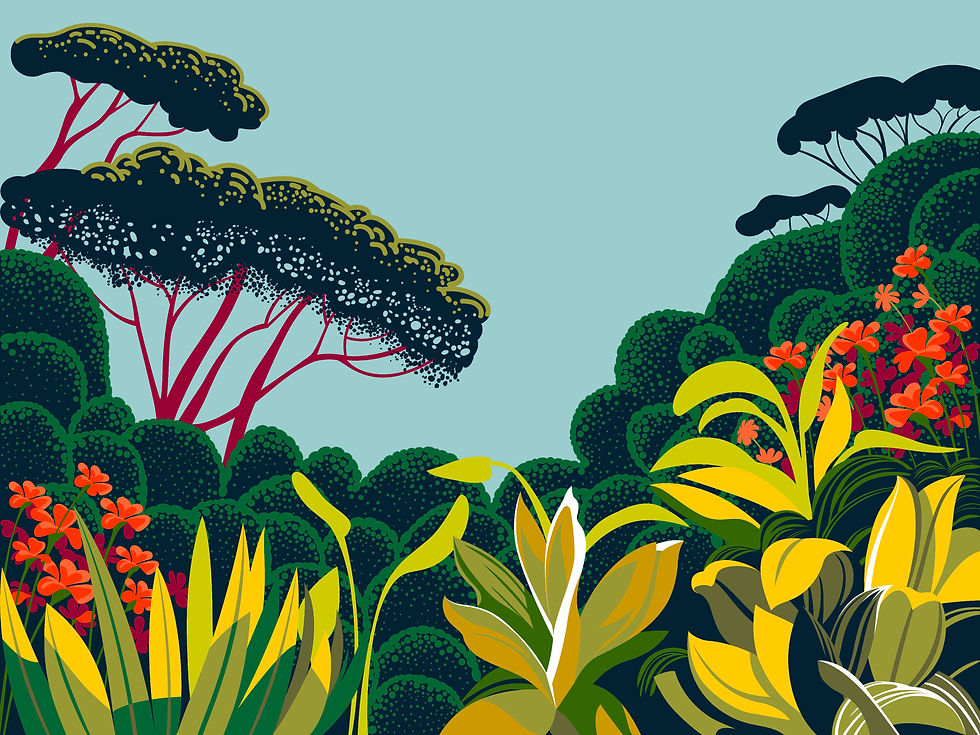The Hidden Duo Behind Success: Environment and Self-Awareness
- Donavan Robinson
- Jul 13, 2025
- 3 min read
Updated: Jul 14, 2025
Success isn’t just about talent or hard work. More and more research tells us that your environment and your self-awareness may be two of the most underestimated drivers of growth, both personally and professionally.
Whether you’re leading a team, launching a project, or trying to find your creative spark, these two factors shape how you show up, perform, and thrive. Let’s break it down.

Environment: More Than Just a Place
We often think of “environment” as the physical space around us, but it's much more than that. It includes the people we interact with, the psychological safety we feel, the visual and sensory inputs, and even the culture we’re surrounded by.
In the workplace, a well-designed and supportive environment can boost performance, creativity, and well-being:
💡 A Harvard Business Review study found that psychological safety—the belief that you won’t be punished for making mistakes—was the #1 factor of high-performing teams at Google.
🌿 The American Psychological Association reports that exposure to natural elements in workspaces (like plants or sunlight) can reduce stress by 15% and increase productivity by up to 6%.
🎨 Studies in sensory design (e.g., ambient lighting, noise levels, even scent) show that intentional spaces can influence everything from focus and collaboration to emotional regulation.
In other words, when your environment supports your needs, physically, emotionally, and socially, you’re more likely to do your best work and feel good doing it.
🧠 Self-Awareness: The Inner Compass
Self-awareness is your ability to understand your emotions, triggers, strengths, and patterns of behaviour. It’s like having a user manual for your brain and heart.

According to organizational psychologist Dr. Tasha Eurich, only 10–15% of people are truly self-aware, even though 95% think they are. And yet, the benefits are clear:
📈 A study published in the Harvard Business Review found that people with high self-awareness are more confident and make better decisions, leading to better business outcomes.
🤝 Teams led by self-aware individuals are 25% more effective, according to research by Korn Ferry.
💬 Self-aware employees are better at handling feedback, communicating clearly, and managing their emotional responses, which all contribute to stronger relationships and leadership potential.
Self-awareness isn’t just about introspection; it’s a critical workplace skill. It allows individuals to regulate emotions under stress, adapt to change, and collaborate with diverse personalities, especially in fast-paced or high-stakes environments.
How They Work Together
Here’s where things get powerful: when self-awareness and environment work in sync, people thrive.
Think about it: a self-aware person in a toxic or misaligned environment can only go so far. And a great environment can’t fix poor emotional regulation or a lack of insight into one’s own blind spots.
But together? They create the conditions for true growth:
The environment fuels creativity, safety, and belonging.
Self-awareness guides purpose, regulation, and communication.
Together, they create a culture of resilient, motivated, and connected humans.
What This Means for Workplaces
At Pop CoLab, we believe these aren’t just “soft” concepts—they’re the backbone of team engagement, innovation, and mental well-being.
By investing in intentional environments and helping teams build emotional intelligence, companies can:
Boost retention and reduce burnout
Foster more inclusive and equitable cultures
Unlock creative problem-solving
Strengthen leadership at every level
Success isn’t just about KPIs or hustle culture. It’s about creating conditions where people can thrive, not just survive.
Let’s Build It Together
Whether you’re a leader, HR professional, or someone looking to bring more purpose to your work, start by asking:
Is this environment supporting growth, or stifling it?
Do I (or my team) really understand what drives, blocks, and motivates us?
The answers might just unlock your next breakthrough.
Need help creating environments where teams can grow or building up emotional skills through play and creativity?
That’s what we do at Pop CoLab. Let’s reimagine success—together.






Comments